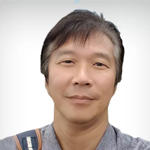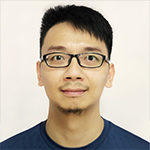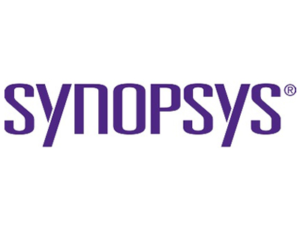Synopsys Workshop
Synopsys Workshop: Foundry PDK-Driven Silicon Photonic IC Design for Aerospace & Defense, Datacom, and High-Performance Computing
When: Sunday, 14 April 2024 12:00p.m.-5:00p.m. JST
Where: Hilton Tokyo Bay
1-8 Maihama, Urayasu-shi, Chiba 279-0031 Japan
Pre-registration
is required,
space is limited.
Join our workshop to learn a complete electro-optic design flow for photonic ICs. Our experts will discuss strategies for managing design teams to prepare for multi-project wafer (MPW) runs with foundries. No prior knowledge of photonic IC design is required, although a basic understanding of EDA basics and practices is helpful.
A hands-on section will be held for all the participants who have their own laptop with Citrix Receiver installed.
Who should attend:
- Aerospace and defense: project managers, principal investigators, members of the photonic and electronic systems as well as circuit design teams
- Telecom, high-performance computing, datacom and sensors: technical leaders, transceivers and co-packaged optics (CPO) teams, simulation and verification professionals
- Academia: R&D scientists, government and industry co-funded project managers
Why learn about PICs?
The time for large-scale, reliable photonic integrated circuits (PICs) has finally arrived. The segments PICs find compelling use-cases include aerospace & defense, sensors, data centers, high-performance computing (AI/ML), health and consumer wearables. Governments, academia and industry are all onboard to transfer the knowledge gained from decades of manufacturing experience in electronic integrated circuits to photonic integration. In addition to the favorable economics from higher energy efficiency, smaller footprint and lower cost, photonic integration is recognized as essential to the national security.
What the workshop will cover:
- Introduction to schematic-driven layout (SDL) design flow for PICs using commercial foundry iPDK
- Custom Photonics: Active and Passive Photonic Component Design for Manufacturing
- Setting up a device design in Photonic Device Compiler (RSoft Photonic Device Tools)
- Using Custom PDK Utility for generating cells, views and parametric simulation data
- Introduction to MetaOptic Designer
- Applications of design of meta-structures-based fiber coupling lens and polarization beam splitter
- Hands-on sections for custom AWG and phase shifters in OptoCompiler
- Hands-on sections for MetaOptic Designer
Agenda:
|
Time |
Events |
Speaker |
|
12:00-12:15 |
What You Are Going to Learn from This Workshop |
Tung-Yu Su |
|
12:15-12:45 |
Introduction to RSoft Photonic Device Tools for Photonic Integrated Circuits |
Daeyoul Yoon |
|
12:45-13:15 |
Introduction to Synopsys Photonic Solutions for Photonic Integrated Circuits |
Tung-Yu Su |
|
13:15-13:30 |
Coffee Break |
|
|
13:30-14:30 |
Passive and Active Photonic Device Generation, |
Tung-Yu Su |
|
14:30-15:30 |
Metalens Design Examples for Photonic Devices |
Daeyoul Yoon |
|
15:30-15:45 |
Coffee Break |
|
|
15:45-16:45 |
Hands-On Training: |
Daeyoul Yoon |
|
16:45-17:00 |
Q&A |
The Citrix Workspace App is required for the hands-on training.
Speakers

Daeyoul Yoon
Senior Staff Engineer
Synopsys, Inc
Daeyoul Yoon is an application engineer for the RSoft Photonic Device Tools. He has more than 20 years of experience in the field of optics and photonics as a development engineer for optical communication devices and application engineer for imaging colorimeters, in addition to his current role as an application engineer for photonic device simulation tools.
Daeyoul earned his BS in the department of Physics in Waseda University, Tokyo, Japan in 1994 and MS degree in Electrical Engineering from University of Southern California, Los Angeles, United States in 1997.

TungYu Su
Senior Applications Engineer
Synopsys, Inc
TungYu Su is a senior application engineer at Synopsys Photonic Solutions. He has more than 10 years’ experience in optics and photonics with a focus on applications of circuit-level design, simulation, layout implementation and physical verification of PICs, device-level design, and validation and optimization of photonic devices.
TungYu earned his BS and MS in the department of Physics in National Taiwan University, Taipei, Taiwan in 2010 and 2012, respectively.

